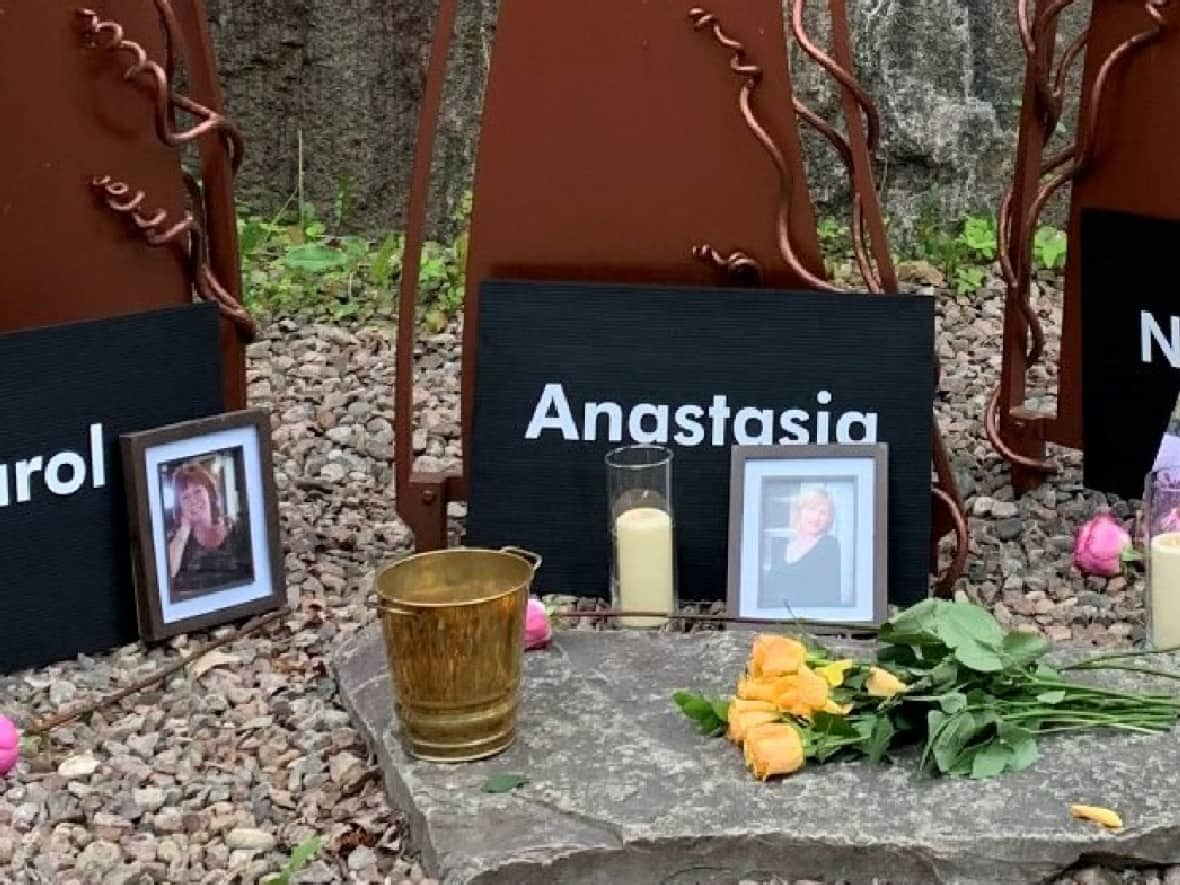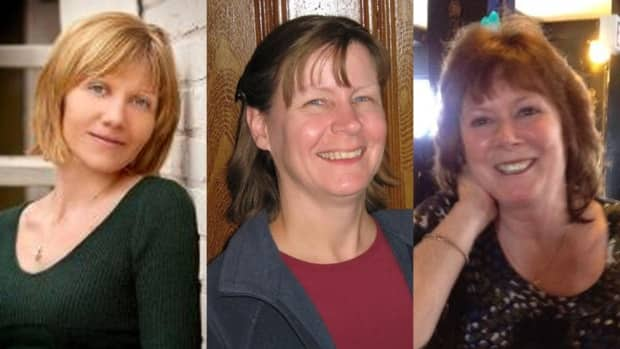'Breach him forever,' probation service warned about Ottawa Valley triple murderer

Ontario's probation service says the high-risk intimate-partner abuser who flouted his probation order and went on to murder two ex-partners and a stalking victim should have been considered for more intensive supervision.
James Pearson, a probation quality assurance manager, made the admission Thursday while under cross-examination during his third day of testimony at a coroner's inquest examining the killings of Carol Culleton, Anastasia Kuzyk and Nathalie Warmerdam.
On Sept. 22, 2015, a man with a known history of gender-based violence murdered all three women in and around Renfrew County after repeatedly failing to attend a program meant to treat intimate-partner abusers.
Basil Borutski was convicted of three counts of murder in a jury trial and is in prison.
Inquest jurors, who are hearing from experts and first-hand witnesses in the case, are being tasked with recommending changes to policies and protocols to better protect and support survivors of intimate partner violence in rural communities.
On Thursday, Kirsten Mercer, the lawyer for End Violence Against Women Renfrew County, a local coalition asking questions of witnesses in the inquest, grilled Pearson at length about probation officers' handling of the case. Pearson was not directly involved but reviewed case files.
Mercer drew from an internal probation service review written just over a month after the murders that was entered into the inquest record.
It found probation officers missed opportunities to reprimand and more closely monitor Borutski, including gathering more information about him from collateral contacts, such as victims.
There is a gap there. - James Pearson, probation quality assurance officer
The report said that given his violent history — including convictions for threatening Warmerdam's son and brutally beating Kuzyk — and his continued denial of responsibility, "it would have been reasonable to have him considered as a potential intensive supervision offender."
"I agree, yes," Pearson said when asked if he concurred.
Mercer also referenced a December 2014 email from an institutional rehab officer to the probation service. It was sent shortly before Borutski was set to be released from jail after his conviction for assaulting Kuzyk.
"It is my opinion that the victims are at risk from this individual," the officer wrote, according to the information read aloud by Mercer. "It has been my experience with abusers such as this one ... that he will not comply at all. You will have to breach, breach, breach and breach him forever."
"If you got that kind of email from someone who'd had a fair bit of contact with the offender while in prison," Mercer then put to Pearson, "would that inform your judgment about how to treat him when he starts wiggling on the requirements?"
I think that we've conceded that we would have liked to see additional direction given, additional enforcement protocols put in place. - James Pearson, probation quality assurance officer
"I believe it would, yes," Pearson replied.
He said he did not know why the probation officers involved in the case are not testifying at the inquest.
A 'gap' in enforcement
At one point in her cross-examination, Mercer focused on the seven-month period from February 2015 — when Borutski was deemed a high risk to recommit intimate partner violence — and the murders.
This was the period in which he stalked Culleton, unbeknownst to police.
It's also when he continued to give excuses for not attending a court-mandated program treating men who abuse their partners. He had originally been ordered to do so more than two years earlier.

The inquest has heard probation officers encouraged him to attend but never charged him for breaching the conditions of his probation, prompting Mercer to ask why more enforcement steps weren't taken.
"In this case, I think that we've conceded that we would have liked to see additional direction given, additional enforcement protocols put in place as it relates to the offender's attendance. There is a gap there," Pearson said.
Not-so-subtle signs of danger ignored, lawyer says
The internal probation service review concluded that if probation officers had gathered more collateral information about Borutski from personal contacts and police, "subtle indications of deviance ... may have been made more clear."
But the signs were anything but subtle, Mercer said to Pearson.
"Much of it was not," Pearson agreed.
Mercer pointed to one of Borutski's first meetings with a probation officer, in January 2013, when he was released from jail following his conviction related to Warmerdam. He was ordered to stay away from her upon release.
"He talks about how he's entitled to show up ... on the edge of her property and hang out there," Mercer said, again referring to notes in the case.
Victims expressing concern would be a red flag, yes. - James Pearson, probation quality assurance officer
The probation officer "disabused" him of that idea, Mercer added, before asking Pearson if that sounded like someone who was going to push the boundaries of his probation.
"I would consider it an indication of someone's willingness to comply with the condition," Pearson replied.
Murderer's move 'a red flag'
Mercer then switched the focus to May 2013, when Warmerdam, Crown attorneys and police voiced a "deluge" of concerns about him having moved to a location closer to Warmerdam following his conviction related to her.
Pearson said the probation officer talked to Warmerdam about the possibility of serving him with a peace bond, but she didn't because "she did not want to bring herself back into the offender's focus."
"So she was afraid of antagonizing him, is that right?" Mercer clarified.
"That's how I would interpret that, yes," Pearson said.
"Does that seem like a red flag at all?" Mercer pressed on.
"Victims expressing concern would be a red flag, yes," he replied.
Borutski was allowed to stay at his new location after the move was backed by a judge.
Closing arguments coming Friday
The inquest heard from its final witness later on Thursday.
Pamela Cross, a lawyer and women's advocate, walked through the systemic changes Renfrew County residents signalled they'd like to see made in the wake of the murders.
The ability for police to disclose information about abusers to current partners, and alliances between law enforcement agencies and community groups to help keep watch on abusers, were just two of them.
On Friday afternoon, parties with standing, including End Violence Against Women Renfrew County and Nathalie Warmerdam's daughter, will make their closing arguments and outline what recommendations they think the jury should make.
The jury will then retire to consider their recommendations.
Leslie Reaume, the inquest's presiding officer, said she expected their deliberations will carry over into Monday and for the recommendations to be announced Tuesday.


